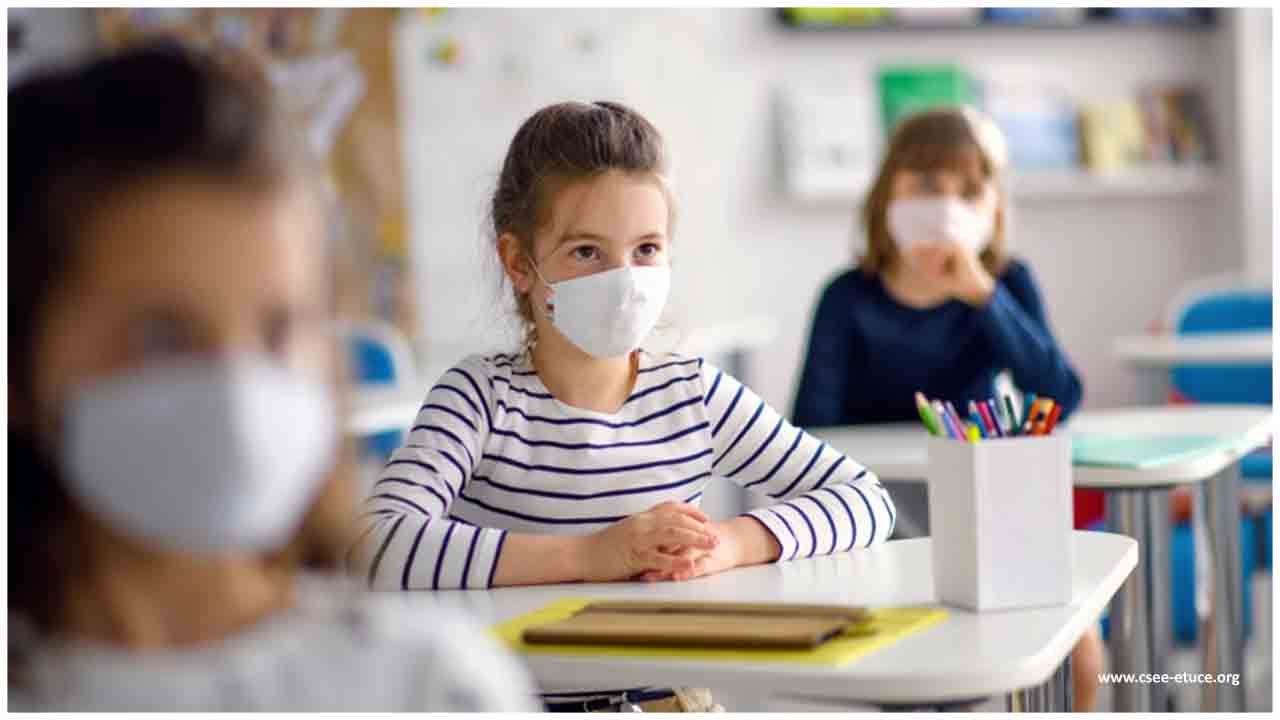Following a high-level meeting with representatives of Member States hosted by WHO/Europe and the Ministry of Health, Italy, on schooling during the COVID-19 pandemic
Our communities continue to deal with many uncertainties brought by the new COVID-19 reality. Following the initial phase of the pandemic, we have been able to ease lockdown measures and develop a more sophisticated understanding of how we can remain safe.
With caution, we are reopening societies and as we do so, we must explore how to safely reopen schools for our children.
COVID-19 has created the largest disruption of education systems in history, affecting nearly 1.6 billion learners in more than 190 countries, and our region is no exception. Most countries in the Region closed schools to assist with the containment of the virus. While this was vital, as we transition to reopening, we must now determine how to open schools in the Region, safely.
School closures can have a profound effect on the health and well-being of children
Although children can contract and transmit COVID-19, they have largely been spared from the direct health effects of the virus, with most cases of COVID-19 in children being mild or asymptomatic. Despite this, they continue to be negatively impacted by school closures, both in terms of their education and their health – including their mental health, social development, and the risk and impact of being in an abusive home environment.
The vulnerable and deprived carry the heaviest burden of school closures
The harmful effects of the pandemic have not been distributed equally. Children living in vulnerable situations continue to be disproportionately affected by their long-term health outcomes and challenges with distance learning, both due to digital poverty and difficulties for parents being able to assist in the learning process.
Challenges in accessing educational support have also been more profound for children with underlying health conditions and children living with disabilities.
Addressing these disparities must be central to any efforts to reopen schools safely.
Today we met to find a way forward
We recognize that many parents, educators, and children themselves have several concerns and anxieties about going to school during these times. So, today we met virtually with representatives of Member States to develop a framework to ensure the safety and well-being of children, their families, and communities.
We would like to reconfirm that our discussions are guided by the best interests of the child and overall public health considerations, informed by cross-sectoral and context-specific evidence.
Measures to be considered
We agreed that there is a wide array of measures that can be considered for risk reduction in school settings and propose the following considerations:
- Protective measures relating to hand hygiene, physical distancing, use of masks where appropriate, and staying at home if sick are cornerstones of safe schooling within the COVID-19 reality.
- Specific policies will need to be in place for at-risk children with special learning needs or health conditions, as well as for educators with health conditions that render them vulnerable to more severe infection.
- It is realistic to prepare and plan for online learning to be available to complement school-based learning in the coming scholastic year. This will be necessary during temporary closures, can be an alternative for children and educators with health conditions, may be needed during episodic quarantine, and may complement school-based learning in circumstances where children alternate school presence to respect physical distancing needs in smaller classrooms.
- The important link between the health and education sectors will continue to grow as we navigate the new post-COVID-19 reality. We are committed to working across sectors to meet the needs of children.
Our commitment
In placing the issue of schooling during the COVID-19 pandemic on the top of our agenda, we are indeed showing that we want to ensure that children and adolescents are not left behind as the world continues to grapple with this pandemic. We commit to:
- building a coalition across our Member States to inform our actions and move forward jointly to implement the best possible measures on the provision of safe schooling for all, including our children;
- agreeing to a unified set of data to learn more about the impact of COVID-19 on children, their families, and communities to better inform future policy;
- preserving equity as a core guiding principle to ensure underserved populations are not further disadvantaged.
We also sincerely appreciate the tireless efforts of teachers and parents who have preserved childhood and, despite the obstacles, providing children with access to ongoing learning, and our health workers who continue to keep our communities safe.
Following this meeting, our focus is to deliver to our citizens a feasible and realistic framework for managing the reopening of schools.
We cannot let children become the hidden victims of this pandemic by denying them the opportunities they so fundamentally deserve.

 Joint statement by Dr Hans Henri P. Kluge, WHO Regional Director for Europe and Roberto Speranza, Minister of Health of Italy
Joint statement by Dr Hans Henri P. Kluge, WHO Regional Director for Europe and Roberto Speranza, Minister of Health of Italy









.jpeg)

.jpeg)
.jpeg)

.jpeg)


.jpeg)



.jpeg)
.jpeg)
.jpeg)


.jpg)


.jpeg)
.jpeg)